
Here's my edition of Top 10 links from around the Internet at 10:00 am today. We now have a Monday-Wednesday-Friday schedule for Top 10.
Bernard will be back with his version this Wednesday. We will have another guest posting on Friday.
As always, we welcome your additions in the comments below or via email to david.chaston@interest.co.nz.
See all previous Top 10s here.

1. 'A major crisis on our hands'
Things are not looking bright for rural Australia. Land prices are too high and to shift them to sensible levels will involve an earthquake that will see financial fatalities.
A Government minister sees the solution in a new rural bank - in what obviously will become a 'bad bank'.
Land price bubbles have consequences and we are about to see them play out here. It could be ugly.
The Australian has a major report:
Agriculture Minister Barnaby Joyce has vowed to wage a "mighty battle" in cabinet to convince his colleagues to sign off on a $7 billion bailout of "distressed" farm loans and avert a "complete and utter financial meltdown".
Addressing a packed crisis meeting of farmers in southwest Queensland on the weekend, Mr Joyce warned that rural debt in Australia had reached an unsustainable level of $70bn and that 10 per cent of it was unlikely to be repaid.
Much of their report is behind a paywall. But BankingDay has a summary:
A senior federal minister is expecting a significant default on farm sector loans and backing plans for a dedicated rural bank. The Australian reported that Barnaby Joyce, the minister for agriculture, told a forum in Queensland over the weekend that "with rural debt, we have a major crisis on our hands."
"If we just let an [unfettered downwards] correction to land values happen, we will have complete and utter financial meltdown."
"Once it became obvious that someone's debt was now [higher] than the value of their asset [farm], the banks would call in their debts and want their money back, farmers would be unable to pay and would walk off their land, and we would have a run on the banks," the newspaper reported that Joyce said.
"This is a massive crisis; agriculture is a viable industry with a tremendous future [so] we must come up with a plan of how to deliver better outcomes for farmers that keep people on their land right now."
A "viable industry" with a "tremendous future" and it can't pay back its borrowing? Doesn't make sense to me.
What is also interesting is that the level of Aussie rural debt is revealed at A$64 billion, with $60 billion provided by banks. New Zealand rural debt is now at NZ$51.8 bln, or 80% of the Aussie level. But no talk here of a rural credit bailout.
However, the land-price lesson may be the key one to watch.

2. Perhaps some disruptive business models are just plain unsafe
As disruptive start-ups in industries like travel, phones, and the like continue to grow and transform traditional services, questions of risk and regulation are likely to become more important - and more so when they involve airlines and some would say, finance. (Here's a report from earlier last week on how a disruptive ticket-selling travel model resulted in six deaths in Ireland on 2011.)
All regulated industries are inefficient: regulation cannot help but add a layer of bureaucracy to any organisation, and no one ever hired a compliance officer as a way of boosting productivity.
This creates a natural inclination on the part of entrepreneurial types to want to disrupt the industry in question says Felix Salmon. They look, they see all that inefficiency, and they know they can produce 90% of the output with 10% of the overhead - so long as they themselves are not regulated or taxed. Salmon makes the important point that from society's perspective, sometimes 90% or even 99% just isn’t good enough. Airlines are a good example: thanks to regulation, they’re incredibly safe.
In finance, regulation is very important indeed - if you want to prevent everything from terrorist finance to global financial meltdown, central authorities need to be able to keep tabs on all financial flows. Finance startups generally operate in a lightly-regulated grey area, just because compliance costs tend to be prohibitively high if you want to, say, start a bank. That explains why Simple isn’t a bank; why most microfinance shops don’t accept deposits; why Apple didn’t storm into the payments space years ago; why it’s so difficult for startups to compete with PayPal, which has spent many years and hundreds of millions of dollars on global compliance; and so on and so forth.
Actually, if there's one company New Zealand bank execs should lie awake at night worrying about, its PayPal. They are good to go, right now.
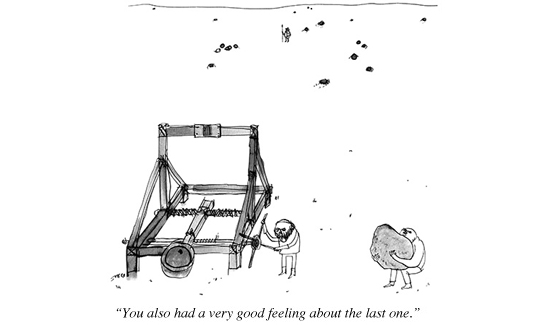
3. If growth is over, efficiency is the new target
It is not only the eco-left who are saying the global economy’s glory days are over. Policymakers continue to focus on short-term demand management in the hope of resurrecting the heady growth rates enjoyed before the 2008-09 financial crisis. This is a mistake says Marek Dabrowski who was First Deputy Minister of Finance under Poland’s first post-Communist government.
Thus, with supply-side factors no longer driving global growth, we must reassess our expectations of what monetary and fiscal policies can achieve. If actual growth is already close to potential growth, then continuing the current fiscal and monetary stimulus will only create more bubbles, exacerbate sovereign-debt problems, and, by reducing the pool of global savings available to finance private investment, undercut long-term growth prospects.
Instead, policymakers should focus on removing their economies’ structural and institutional bottlenecks. In advanced markets, these stem largely from a declining and aging population, labor-market rigidities, an unaffordable welfare state, high and distorting taxes, and government indebtedness.
The list of growth obstacles in emerging markets is even longer: corruption and weak rule of law, state capture, organized crime, poor infrastructure, an unskilled workforce, limited access to finance, and too much state ownership.
In addition, markets of all sizes and levels of development continue to suffer from protectionism, restrictions on foreign capital flows, rising economic populism, and profligate or poorly targeted welfare programs.
If these problems can be addressed, both globally and at the national level, we can end the dangerous fiscal and monetary expansionism on which the world economy has come to rely and allow growth to be sustained over the long term – though at lower rates than in recent years.
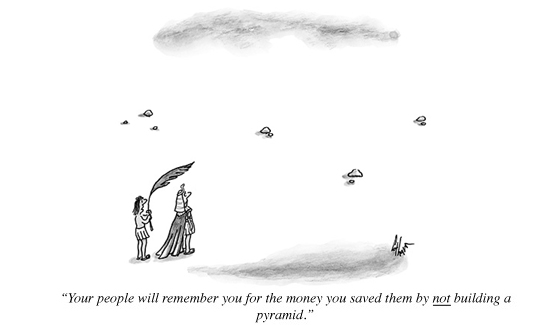
4. NZ a leader or follower?
Giulio Boccaletti is the managing director for Global Water at The Nature Conservancy. He wants the world to do what New Zealand is starting to do - storing fresh water for agricultural and city use.
The 2013 World Economic Forum Global Risks report identified “water supply crises” as the biggest “societal risk” to global prosperity. According to some estimates, meeting the needs of a growing global economy will require the world to begin devoting at least $1 trillion annually to water infrastructure within the next 20 years – roughly double the level of annual spending today.
Since 2000, when the United Nations Millennium Development Goals (MDGs) were adopted, the global community has rightly focused significant attention on providing access to basic water and sanitation services. From 1990 to 2010, more than two billion people gained access to improved water sources. As the United Nations prepares to adopt so-called Sustainable Development Goals as the post-2015 successor to the MDGs, the high-stakes business of large-scale water infrastructure should be placed front and center.

5. Will Marx return?
The voices of the old left can still make themselves heard. Usually protected by tenure, they can still summon up a headline about 'the race to the bottom' from trade agreement negotiations. The problem is, the evidence points the other way. Yes, income disparities are growing within nations, but as been pointed out here before, there is a remarkable reduction underway of income disparity between nations on a per capita basis; Bill Gates pointed it out a few weeks ago too.
It's remarkable because many, many big 'poor' nations are rising, rather that the 'rich' ones declining. It's a race up, not down.
Here's Charles Kenny in Foreign Policy from an article someone labeled 'Marx is Back', but which actually says something quite different.
Globalization may have been the watchword of the 1990s, but it's still a work in progress. As interconnected global markets get ever more interconnected, average incomes are converging. The last 10 years have seen developing countries grow far more rapidly than high-income countries, closing the gap in average incomes. Economist Arvind Subramanian estimates that China in 2030 will be about as rich as the whole European Union today and that Brazil won't be far behind, clocking in at a GDP per capita of around $31,000. Indonesia, he reckons, will see a GDP per capita of $23,000 -- about the same as tech powerhouse South Korea today.
Marx predicted that the global working class would unite and revolt because wages everywhere would be driven to subsistence. But as wages increase and level out around the world, the plight of the proletariat -- hard work, low pay -- today more than ever means easier work and better pay. And it's bringing hundreds of millions of people, in China alone, out of poverty. Clearly, the communist revolutions of the first half of the 20th century proved far, far worse for living standards than the well-regulated markets of the latter half.
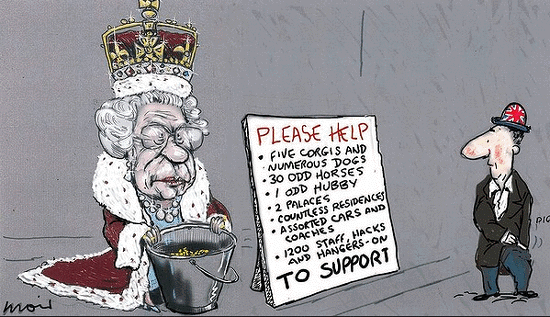
6. The knack for slack
Struggle to get everything done? Don't worry, you are not alone in that. And Brooke Allen says you shouldn't worry about the stuff you don't get done. In fact, he has ten great reasons on how to manage getting things done which are well worth a read (it's short).
The core point is, he still gets lots of things done, its just the way he looks at it. Its no justification for the lazy. Here's one that caught my eye:
To-do lists are best if you cannot remember where you put them.
The great thing about writing something down is that your subconscious brain will stop obsessing about it and you can relax and go to sleep or the movies or whatever. But the bad thing about to-do lists is that you might feel compelled to do all those things. Luckily, I’m great at making and losing lists. The list helps me get to sleep tonight, and then tomorrow when I cannot find it I only do what I remember to do, which turns out to be the important things.
Also, keep “did” lists. If you track all you’ve already done, the little bit still to do will seem less daunting.
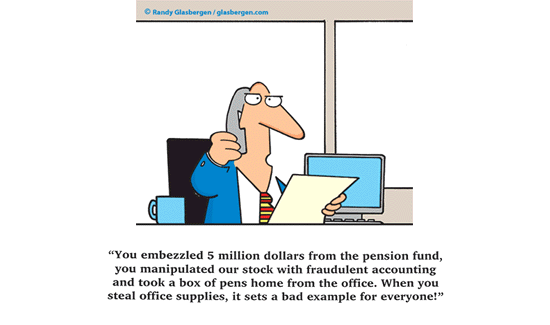
7. 'We don't want to pay anymore'
For those of us who use MSExcel a lot, moving to cloud-based open-source spreadsheets just doesn't seem right, safe, or even come with the same functionality we have developed as native skills.
But I am sure it must be ok to make the switch. The British Government has said it will be doing it, and they wouldn't be making a mistake would they.

8. Thinking big
The tunneling for the Waterview Connection in Auckland is now in full swing. More than 150m has been completed in an impressive start. The Waterview Connection will create a direct motorway link between the central business district and international airport. It is New Zealand’s biggest road project ever, with a construction budget of $1.4 billion. The tunneling machine was custom built and with a cutting head diameter of 14.4m, 'Alice' is the world’s 10th largest ever Tunnel Boring Machine. 87m long and weighing 2,200 tonnes, she has a top speed of 0.005km/hr.
The benefits for Auckland will be significant, far outweighing other 'public transport' projects including the equally costly electrification of Len's train set.
But we must not forget that the central tunnel project is a piece of political quackery. Most of the project is on the surface except for this 2.5 km tunnel. And we have a tunnel in the suburbs because the local MP at the time didn't want to risk the NIMBY ire of some core supporters. More than 800 houses were threatened. In the end about 200 have been removed. 'Fortunately', when her Government lost the election, the super-expensive tunnel option was retained as part of a 'road of national significance' because public projects were required during the GFC stresses. A well-run Board of Inquiry confirmed the option. Now we are left with an endless obligation to maintain a tunnel and its expensive air-filtering processes, forever.
Having said that, from an engineering perspective, it is impressive. It will halve my travel time to the airport. Thank you, New Zealand taxpayers.
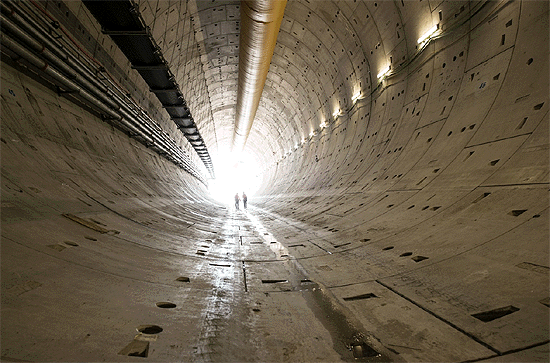
9. Twins?
Is it just us, or are they related? We will know when the US Fed raises rates to 2.2% within two years ;) (H/T David H.)

The new Chairman of the US Federal Reserve, Janet Yellen (left), and iconic cricket commentator Richie Benaud (right)
10. Today's quote
"Bottoms in the investment world don't end with four-year lows; they end with 10- or 15-year lows." - Jim Rogers
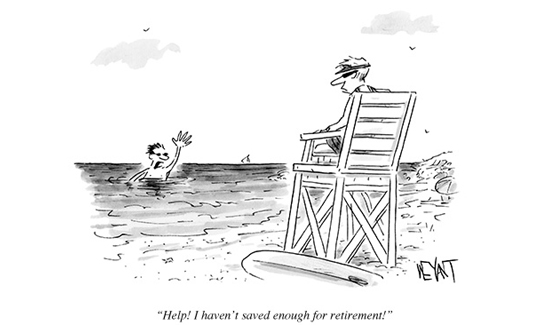
48 Comments
lets look at Ag debt based on Exports,
Australia is a major agricultural producer and exporter. Agriculture and its closely related sectors earn $155 billion-a-year for a 12% share of GDP. Australian farmers and graziers own 135,997 farms, covering 61% of Australia’s landmass.[1] Across the country there is a mix of irrigation and dry-land farming.
New Zealand ag exported $32 billion last year. ( %40 of gdp?)
We have $51 billion of farm debt Australia has $64 billion.
Who has the problem?
That's a jaw-dropper
Im having a wtf moment.
In terms of land mass turned to agriculture V debt
debt per acre cultivated NZ v OZ?
cause this sounds way worse here.
Note to noataneconomist...no bailouts for farmers eh?
eh?
Self inflicted, stupids take on the debt but someone else pays, I assume the other political party's voter block, yeah that seems fair....
regards
I do not advocate bailouts Steven and never have.
I am not responsible for what Politicians either side of the Tasman choose to discuss or implement.
And what makes you think every farmer has debt? Or is that just another assumption that you have made?
Who are the Self inflicted stupids Steven? All farmers? Some farmers?
Who is the someone else who would pay?
As per normal you are going to extremes, and forming straw man arguments. So for instance sure some farmers dont have debt, however enough do such that when that % default they take down the system. So its not a case of all farmers defaulting taking it down at all. The thing is banking leverage is so high that even default rates in the 10% range seem enough to make the banks insolvent.
The "self inflicted stupids" are the ones who are gambling on ever increasing asset/property prices will make them rich. Like I say tulip mania. This isnt restricted to farmers, the housing market is similar, if not worse.
Who will pay will be the tax payer, or the lender of the debt. The problem I have with a bad bank is the shareholders should be taking the fall as they voted in the Board....who should also be taking the fall and not the tax payer.
regards
Firstly they are talking about a rural bank. Most countries have had these in the past including NZ. I assume it would be modelled on similar past Rural Banks.
As for your first line comments - get a life...and read understand what I said.
It is people who contribute very little to the NZ tax base who want the tax system there for their own greedy personal needs.
So is the cost of your health care, childrens education, police, justice and superannuation etc covered by your contributions over your working life?
You either have to pay your own way and forget about taxing or tax which allows others to get subsidised.
But you like redisrtibution so you choose the latter unti you think someone else might be getting more of a share than yourself. Tsk Tsk..
Aussies get a rural bank, in NZ we get OBR.
AJ - yes, well the slow swimming sperm that maketh our RB.... ran out of oxygen....one cannot expect much else.
Our problem is our Joyce (Steven - Minister of Economic Development) doesn't believe we have a problem and wants to keep intensifying agriculture (i.e. take on even more debt and with even lower margins on capital).
an example of.
http://www.stuff.co.nz/business/farming/dairy/9671956/Reworking-our-dai…
For a shed [barn] that is suitable just for wintering dry cows, then the overall additional capital requirement will be about $2000 per cow. For a system set up to include milking cows, then the cost will be even higher as the cows need to be kept cleaner.
In broad terms, the total capital involved in a typical New Zealand dairy farming system now exceeds $60,000 per hectare. On a per cow basis, this is typically between $15,000 and something over $20,000 per cow. So the additional capital of a shed [barn] is significant.
Also, this shed [barn] capital, unlike land, depreciates over time [as do milking sheds, related earthworks, irrigators, feed systems], and so it can add significantly to the cost of production - aside from pressure on farm cash costs.
http://keithwoodford.wordpress.com
yay for the relationship mangers.
Keith Woodwards article is interesting in that what he is saying is not necessarliy shared by Regional Councils. Soil type is starting to be discussed more and more and an acceptance that there will not be a 'one size fits all' solution for farming. But rather different soil types may have different options available. I would have thought that Prof Woodward would have had this information available to him.
The backstory to Woodford's article is that there are at least four interlocking pressures which are prompting such such moves. The moves themselves are worth noting:
- narrowly concentrating potential pollution so that it can be dealt to, and in a measurable way, instead of being widely dispersed, hard to measure, and harder to manage. This is also the view of Stewart Brand (Whole Earth Discipline): concentrate problems, find engineering solutions, apply them. Works for cities. And nuclear.
- corporate farming. Who else can afford the capex and the overheads of compliance and micro-regulation e.g. the Horizons One plan?
Those pressures are:
- Credit. Banks are now demanding detailed, explicit cash flow forecasts and other measure/manage type proof. Easier to do for 20 farms than for one, on a per-farm-effort basis.
- Regulation - nitrate emissions, downstream effects, water bodies, yada yada.
- Cultural - iwi are a big voice in the waterbodies arguments, and as the Zone Committees in Canterbury (under a totally appointed regional council, note) are a strong and sensible voice. They take a very long term view.
- Zeitgeist. The Greens, good, as always, at getting the slogans 'Dirty Dairy' etc in as memes, have pushed the centre of public opinion in a way that won't tolerate lack of action anymore. (Mind you, I can't wait for their next brain-wave - Crofulous Cropping or Seedy Seeds, anyone?)
Be careful wots ya wishes for.....
A friend related to me a conversation they had with a very senior RC staffer in their area - 'we are looking for a collaborative regional solution for our regional problems and to h.ll with what the rest of NZ wants. We live here, they don't.'
The 'Green movement' appear to be fearful of this occuring. Much harder to fight a whole community driven solution.
Hi - I'm sure I have made a mistake but can't find it.
The figures I'm using appear to show in short form, (sources below)
Dairy cattle farm debt increased from 2003 to 2013 by 68.6 percent that is from 11290 million to 32373 million, but productive cows increased by 334% from 3928140 to 5103144. If this is correct the debt per productive dairy animal has plummeted and it follows that the dairy industry is in very good health.
Any rate I look forward to being corrected.
Dairy cattle farming -Total loans -
http://www.rbnz.govt.nz/statistics/tables/c27/Dairy Cows and Heifers, in Milk or Calf
http://www.stats.govt.nz/infoshare/ViewTable.aspx?pxID=ec8f0dcd-76ea-40…
Airports, airlines, Jet A1 no longer cheap and maybe even rationed....bye bye.
regards
3 - note the ignorance. He has absolutely no idea what makes things happen.
So his premise "slower growth than before" is total horsepoo.
Every reporter should be able to grasp this simple fact. No energy, no work. No work, no 'growth'.
He advicates 'efficiencies' - as do I - but has no clue as to what they are. Fascinating example of a finance-thinking person with absolutely no idea about the limits of the real world.
And, David - some of who understand those limits, chuckle at the 'eco/left' label. How about 'realist'?
"limits of the real world."
Water come out of a tap, power out of the wall...etc, etc.
Most people have no real idea just how complex, energy hungry and inter-related their world is.
regards
@PDK whats your view on water storage ?
I know we disagree on lots of stuff , but given that we both agree that we are consuming the planet to death , I am interested in your opinion?
Having spent some time in Australia , and Southern Africa ( Zimbabwe) I found it interesting that they built big dams due to erratic rainfall , and also for power Genaration (Kariba) .
Joahnnesburg gets its water from the controversial Lesotho Highlands project , funded I think by the World Bank , it was massively disruptive for the Basotho tribespeople.
Like the UK , we dont really have big water storage facilities , although Hydro-power is big here.
I think we need to become more resiliant, given the more extreme climate events from AGW then we need bigger reserves for safeties sake. And I dont mean others can then use that capacity, ie farmers to "wontonly" irrigate. Such an endevour would be extra capacity on top of more resiliance.
regards
Boatman - I move somewhere between telling folk to live within their means (ie use what they've got, at a steady state) and telling them to become 'resilient'.
Water storage is probably one of the best 'resilience' moves we can make. The cheapskate version is to dam an existing waterway. That stops ell migration, fines movement etc. So the better way is to take it sideways, fill a non-flowing hollow somewhere, and see if you can use it for hydro as well.
It's too late to argue for a virgin planet in farm-altered terrain. Perhaps the win-win could include water-plants (flax comes to mind - there used to be a lot of it about - around the edges, bees and birdlife and biodiversity being part of the package.
Of course, that wouldn't be 'productive use', in some eyes :)
The basic rules are simple.
When surplus presents, use the excess time nd resources to shore up against tough times.
That means when petrol is 15c a litre, it's time to start researching low usage and low emission technology and implimenting modular systems.
When electric is a mere 17c a kWh, it's time to develop low power bulbs and PV array (while the resource to process (energy) is cheap and easily available.
The time to start developing sensible personal use water systems is while you have good clean water. Waiting until the place is some ad for an African charity aid is too late. (ie you see someone at Nestle (for example) eyeing up some resources near you, then it's time to look closer. otherwise when it's worth something, you'll find the longtime folks will already be there and owning that market).
Always go for reliable low term solutions, ones that will still be chugging away without consumables in 30 - 100 years time. That way if you haven't overspent then it doesn't matter what happens to the market because you'll still be reaping rewards.
So the question is not "when" you should start water/resource protection/reduction... but the constant question of "how much" of current cost should I be putting into the sinking fund for it. A good rule of thumb is between 50-100% of depreciation in that area (or interest rate * expense value) and looking for compounding effects.
#1.
Dear Treasury.
Please can you advise me, just which major Land banks are at risk at the moment.
I wish to diversify away from the risk.
Putting it all into one massive bank, may be the present Governments and the Banks way of fixing things, but I am just a poor farmer.
My solution was never to get in the fix, in the first place, but diversify as a rule.
I need a little guidance.
Signed William English.
Davos.
The Aussies are going to bail out the banks with bad rural debts, an Aussie banker told me so two years ago.
The question is, will the Australian Government bail out bad rural debt owed to Aussie banks in NZ ?
I'm thinking no. So the next question is who will?
I odnt understand how this will work. I mean they (the oz govn) will have to bail the bad bank out. The problem with having this bad bank as I see it is, there will be no shareholders but the Govn ie PAYE's to take the losses.
regards
They will use the governments AAA rating to cover the banking industry. The taxpayer on the other hand is getting...
shafted.......
Its got to the stage that Im ceasing to be amazed that the voter/tax payer just isnt understanding that they are becoming the last man standing.
So mom and pop investors will be expected to buy the debt? the pensions industry? LOL...are they/we really that naive?
notaneconomist etc worries about the Govn skimming when really its nothing compared to what the private side is achieving and all at what looks like zero risk.
Funny really.
regards
yes they really are that naive.
They vote based on what happens to them now, and what they're promised (and how well the candidate dresses).
It's not that most don't know what's going on, they don't _want_ to know. In fact many that I've talked with want not to know and declare that's the governments job, because the government job is to work for them.
Does interest.co.nz believe in the forecast of a fantastic year for economic growth in 2014? What's their forecast?
I ask because I had a look at the credit charts on this site just now - business credit grew by $7.6b a year from 2003-2008, or 5% of GDP a year, but since the recovery from the GFC started in late 2010, it's been growing by $2.2b or 1% of GDP a year. Not much sign of an upturn in 2013. Wouldn't superconfident businesses have been borrowing and investing in 2013 if they are anticipating producing more in 2014? Or could the extra money for investments come from profits or insurance payouts? The former seems a bit unlikely, corporate profits were surely pretty robust in 2003-2008.
How would readers interpret these figure?
Any growth is going to debt based.
The easy stuff has gone. In 1956 my father purchased a brand new D4 Caterpillar tractor, it used 25 gallons of fuel a day and gas was 20c a gallon. He broke in a thousand acres and carried an extra 5000 ewes. Return must have been better than 10 to1. Fertiliser was less than $20 a ton and a shepherds wages was $20 a week
Now Im getting $100 for a lamb, fertiliser is $500 a ton and my shepherd costs $900 a week. My costs have gone through the roof, in 1984 they were %35 of gross sales now they are %85. In my fathers day they must have been %10 at the most.
Then they tell us we need irrigation schemes and dairy houses for cows which look like a negative return to me.
We have all this debt and Ag is not going to able to pay the bill, so what will?
Mauldin
The idea that ultra-low interest rates cause booms and busts is not new. Economists of the Austrian school, led by von Mises and Hayek, warned that credit-fueled expansions lead to the misallocation of real resources that end in crisis. In the Austrian theory of the business cycle, the central cause of a credit boom is the fall of the market rate of interest below the natural rate of interest. Investments that would not be profitable at higher rates become possible. The bigger the deviation of interest rates from the natural rate, the bigger the potential credit boom and the bigger the bust.
Like all bubbles, rapid price increases can rapidly reverse when interest rates return to normal levels. The greatest danger will then be to leveraged investors who bought farmland, corporate bonds, some emerging markets, and other bubbles with borrowed money.
http://d21uq3hx4esec9.cloudfront.net/uploads/pdf/140201_TFTF3.pdf
Last night I finished "Requiem for a Wren" by Neville Shute. He puts down some numbers for a 14,000 acre sheep station in Victoria for the WWII and after period. Would add up to about what you state, 10%
Here is another intesting angle on corporate bonds that has just occurred to me. They are a method of making money that falls outside of the banking system surely? So do they fall into the Shadow Banking sector? How do you measure that?
Hmmm, interesting, so the Austrian school puts the fall of interest rates first? as the cause?opposite to how others think of it.
So when Greenspan that arch Libertarian republican lowered the OCR (again and again) to keep things going that rate must have already been to low and by making it lower and lower he made things worse and worse?
So the OCR should never be altered from the natural rate? So the Q is how do you determine the "natural rate" (even if such a thing exists) I cant see that but being in hindsight and even then.....
Other schools consider the interest rate as the symptom or a tool and not the cause.
Degree of credit fueled expansions? ie businesses always borrow to expand.
Personally I dont think natural rate exists or is connected to an economy. Even if it does I dont see how its determined with any accuracy.
regards
the interest drop, allows progress and development.
progress and development have been 100% linked with economic growth.
such booms require two things: potential to expand, and capital to purchase resources.
that results in spending, spending = revenue, revenue = funding, funding = debt servicing & customers through velocity of money.
That's one of the main reasons that the Auckland property prices aren't a bubble. The building is worth 3-5x cap-ex. the premium is the restrictions, locations, and most of all the huge pile of cash that banks and government have counted on being there. That is the "potential to expand", the capital gain in auckland (as competition is virtually impossible) is quite solid and thus interest costs can be passed on (ie making interest "cheap"). It dosn't matter about LVR and OCR type controls as the equity pool and interest recovery are solid, That's why it's not a bubble but a development. The biggest driver now is that the banks and government are in too deep so can't allow a proper correction to happen. It's a bit like the story about the Bank and Old Jonesey's Farm, they lent him so much that they couldn't afford to not lend him more to keep going. Collapse those property value and what would happen to the security for the rest of Auckland properties? what would happen to the finance for borrowing? what collective papers would government and bank borrowing be worth - it'd be FannyMae/FreddieMac toxic loans all over NZ's biggest assets!
And it's the ability to borrow against security (aka "dead equity") that created the industrialised world, it's the only way to get shortterm lump sum cash vs longterm proceeds. And that's where successive NZ governments and the RBNZ have been killing NZ - by relying on the OCR system, which can't differentiate between a farmer replacing a run down dairy shed, or a startup manufacturer needing building and plant and upfronts, and auckland/non-auckland leverage... They have stuck their across the board 1-3%, effectively creating Muldrone's Price Freeze all over again - whacking off the tall poppies, and instead fertilising the dead equity.
Andrewj - it's the ratio of the leveraging that is the problem not the leveraging in itself.
Bubbles are caused by people thinking the grass is greener on the other side of the fence. They see someone as doing well and think that is the investment to get into.
I hear what you are saying re the cost side - however how many of these increases occured due to interferring Government and bureaucrats and those who suffered from a case of green envy wanting a larger slice of the pie without any work or risk involved.
No the cost rises are energy which is no longer cheap and complexity which our modern world demands and that in turn costs yet more expensive energy. The so called compliance costs are minor in comparision. On top of that some compliance costs stop ppl externalising the costs or damage onto others, hence really business now tend to be facing their true costs.
regards
The biggest issue I have with this is natural rate argument is that there is no seperation of debt for a business and debt for a speculator. I look around and see businesses struggling with increased costs and a low OCR helps them survive (let alone prosper). Meanwhile the financial industry seems to be using these low rates to madly speculate with others money and make huge margins for no real contribution to the economy....indeed a parasite on it...but thats OK as its the magic of the free market at work.
Meanwhile the arguments of the Austrians seems to be shove up the rates to stop the mad speculation. What that will do is kill the businesses, and send us into a depression, or in other words the real economy and jobs goes bye bye.
Well bugger it, no it isnt a solution.
regards
The biggest speculators are the politicians and bureaucrats......the free market has many illusionary components. People are told it is the free market and then believe that it is without doing their own fact finding to see where the illusions are.
When things go wrong people can apportion blame and say the free market doesn't work. When in fact it is the hand of the economic magician that is to blame.
As already noted, the bills are beginning to come due. Inflationism’s inevitable consequences have manifested to the point of being highly destabilizing. Late-cycle Credit excess has created enormous amounts of suspect debt and economic maladjustment. Worse yet, these days much of this debt trades in the marketplace. Likely huge quantities of potentially problematic securities are held by leveraged speculators.
Yep and when they want to cash it in?
oh boy.
Then we'll watch as Govn's bail them out with the future incomes we wont have to stop a Greater Depression that they wont.
regards
The free market doesnt work, all it does is give the sharks a free and un-restricted feeding frenzie.
The economic magicians as you put them are in fact the "free market" gurus, singing they mantra "free market is right"
regards
"tulips"
regards
Re. Farm debt
Now I am no farmer but I imagine that when a prospective farm owner goes to the bank to raise some debt to add to his/ her own savings to make a purchase, the bank says OK.
The way I see it is that the bank should accept a responsibility on the decision they make.
So when it comes to foreclosure the bank should by law be unable to recover more than a maximum regulated percentage of the loans they were party to.
That would soon get more realism into farm lending.
Shades of recent residential lending here?
Re Aussie Farm Debt : The slow train wreck unfolding in Australia will not be good for us.
- The banks there are the ones operating here
- Aussie is our still biggest two-way trading partner
- They are closer to us on almost any measurable level than China
- We have similar levels of Ag Debt
- It could scuttle our recovery
Re Aussie Farm Debt : The slow train wreck unfolding in Australia will not be good for us.
- The banks there are the ones operating here
- Aussie is our still biggest two-way trading partner
- They are closer to us on almost any measurable level than China
- We have similar levels of Ag Debt
- It could scuttle our recovery
Australian farm cost structures are a lot lower than ours. Fuel is $1.45 liter.
Expect a lot more Aussie farm products in your Australian owned supermarkets as the NZ$ satys stubbornly high to mask the inflation .
Similar levels of farm debt on a 5th of the income.
reading Jared Diamonds book "Collapse".. I think he used the metaphor of "potplant" to describe Austrailias soil... ie. not good
By comparison...NZ has very fertile soil...???
Are u sure Aussie farm cost / yield ..... of whatever, are less than NZs'.????
http://ussromantics.wordpress.com/2012/05/13/jared-diamond-on-australia…
They do farm extensively, when we are more intensive. We have an issue with P levels. I don't hear the Fletchers much anymore.
They have have a more understanding Tax authority.
http://www.ato.gov.au/Business/Fuel-schemes/In-detail/Fuel-tax-credits-…
We are losing about %10 of our P every year we dont apply fertiliser. A lot of coastal coutry around me will be starting to produce less soon.
A good effort there, I thought, to note Janet Yellen's resemblance to Richie Benaud.
#1... They just had a sustained price war with some agricultural products... what were they expecting?

We welcome your comments below. If you are not already registered, please register to comment
Remember we welcome robust, respectful and insightful debate. We don't welcome abusive or defamatory comments and will de-register those repeatedly making such comments. Our current comment policy is here.